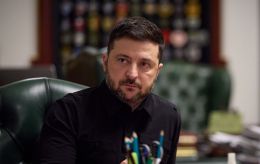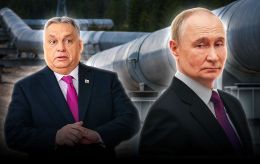Putin's losing the Caucasus: How Armenia and Azerbaijan drift from Moscow orbit
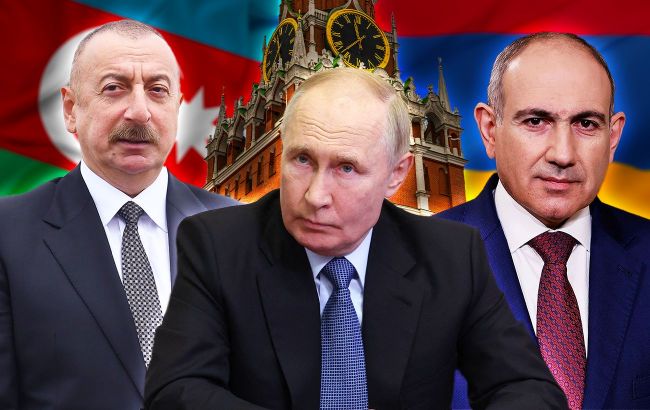 Ilham Aliyev, Vladimir Putin, and Nikol Pashinyan (collage by RBC-Ukraine)
Ilham Aliyev, Vladimir Putin, and Nikol Pashinyan (collage by RBC-Ukraine)
As Russia continues its war against Ukraine, its position in the South Caucasus has sharply deteriorated. What’s behind the growing tensions between Russia, Azerbaijan, and Armenia? And will Moscow's influence in the region continue to wane? RBC-Ukraine investigates.
Key questions:
- Why has Russia begun repressing the Azerbaijani diaspora?
- How is Baku responding, and what is the "Russian sector" being accused of?
- Who’s trying to overthrow Armenia’s legitimate government, and what role does the local church play?
- How is Armenia attempting to break free from Russia’s sphere of influence?
Russian security forces are brutally detaining dozens of Azerbaijanis, while in Azerbaijan, FSB (Federal Security Service) agents are being aggressively arrested. Russian Z-bloggers are calling for missile strikes on Baku and spreading claims about "filthy Azerbaijani Nazis." Meanwhile, Armenian priests are reportedly trying to topple the current government, the prime minister has scandalously suggested exposing himself to the head of the national church, and Armenia's authorities are considering banning Russian propaganda channels.
These explosive developments, unfolding in just the past few days, illustrate how rapidly Russia is losing its grip on the South Caucasus. Until recently, Moscow's standing in the region seemed relatively stable. Russia had even managed to tighten its influence in what was considered the least friendly country of the region, Georgia, where mass protests against election fraud ended without results.
At the same time, the Kremlin’s ties with Azerbaijan and Armenia had long appeared solid. But now, two simultaneous crises are quickly pulling both countries away from Moscow.
Attack on the diaspora
The conflict between Baku and Moscow was triggered by the detention of over 50 Azerbaijani citizens in the Russian Yekaterinburg over a decades-old unresolved criminal case. Two of them died shortly afterward. According to the Russian-issued death certificate for one of the men, Ziyaddin Safarov, the cause of death was listed as acute cardiopulmonary failure. However, an Azerbaijani forensic examination revealed that Safarov had died from multiple fractures and severe traumatic shock.
The Azerbaijani government sharply condemned Russia's actions. Furthermore, all cultural events planned by the Russian state and private organizations were canceled.
Soon after, two Russian FSB agents operating under the cover of the propaganda agency Sputnik Azerbaijan were detained in Baku. In addition, Azerbaijan's prosecutor's office opened a criminal case against Russian security officials for torture and murder - a move unprecedented in Azerbaijan, where even Baku itself has faced criticism from human rights activists.
The Yekaterinburg incident could have been written off as a rogue action by incompetent local law enforcement. That's the narrative pushed by Moscow’s central authorities. However, several details suggest otherwise.
First, the criminal case linked to the murders for which the Azerbaijanis were detained is 24 years old. Second, Russian propaganda outlets immediately launched a hysterical campaign, talking of "Azerbaijani Nazis" and even suggesting that "Baku is a Russian city." Moreover, similar arrests of Azerbaijanis have occurred in other Russian cities, suggesting a clear political motive.
Azerbaijan had previously tried to balance between different power centers in the South Caucasus, including Russia. There were many reasons for this: a desire to use Russia as a counterweight to Türkiye and other influential players, as well as purely economic considerations. At one point, even the idea of selling Russian gas to Europe under the guise of Azerbaijani supplies was floated. And most significantly, there's the issue of the diaspora: an estimated 1.5–2 million Azerbaijanis live in Russia.
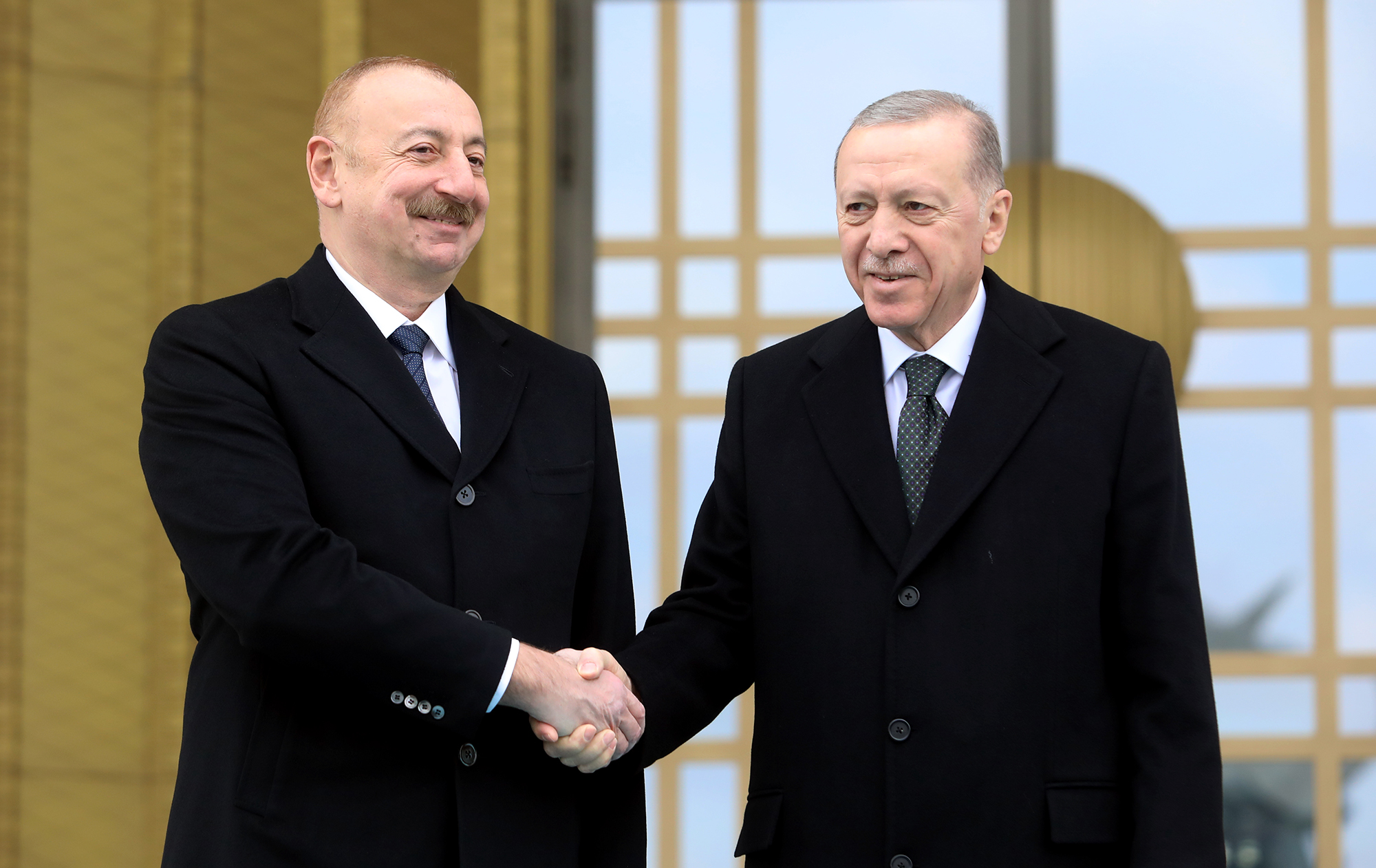
President of Azerbaijan Ilham Aliyev and President of Türkiye Recep Tayyip Erdoğan (Photo: Getty Images)
"Until now, Azerbaijan has made every effort to avoid any escalation in relations with Russia for the simple reason that a large number of ethnic Azerbaijanis live in Russia. For Moscow, the presence of labor migrants from Azerbaijan, Tajikistan, and other countries is a tool of leverage," said Maryna Honcharuk, former representative of Azerbaijani state institutions in Ukraine, in a conversation with RBC-Ukraine.
This situation has shifted as Azerbaijan has strengthened its economic standing, especially in energy, and as Russia has poured most of its resources into the war against Ukraine.
According to Wojciech Wojtasiewicz, an analyst on South Caucasus issues at the Polish Institute of International Affairs, Azerbaijan's government is not interested in subordination to Russia but in pursuing a multi-vector foreign policy that emphasizes the country's independence and assertiveness.
Baku can afford this stance thanks to its victory in Karabakh, its strong military, and support from Türkiye and Israel. As a result, coercive pressure on Azerbaijan is unlikely to be effective.
"Due to the war in Ukraine, Russia is now too weak to conduct military interventions in the South Caucasus to pressure individual countries. Sooner or later, the Kremlin will realize that backdoor negotiations with Ilham Aliyev (President of Azerbaijan - Ed.) will yield better results than open confrontation," Wojtasiewicz noted.
Still, the consequences of this confrontation are already visible, especially in how far Russia can go in influencing Azerbaijan's domestic affairs.
Moscow's fifth column in Azerbaijan
"The most telling thing during moments of crisis or tension between Baku and Moscow is that Azerbaijan has finally recognized just how much of a national security threat the 'Russian sector' poses," said Honcharuk. "This primarily refers to the network of Russian-language schools and universities — and more broadly, to everyone working with Russia. Because the 'Russian sector' is all about cultivating loyalty and sympathy primarily toward Russia."
The first clear sign of this shift came last December, after Russia's air defense shot down an Azerbaijan Airlines plane, killing 38 people. While Russia never officially admitted guilt, Putin did apologize to President Aliyev for the tragic incident. Azerbaijan, however, continues to demand that Russia acknowledge responsibility, punish those involved, and pay compensation.
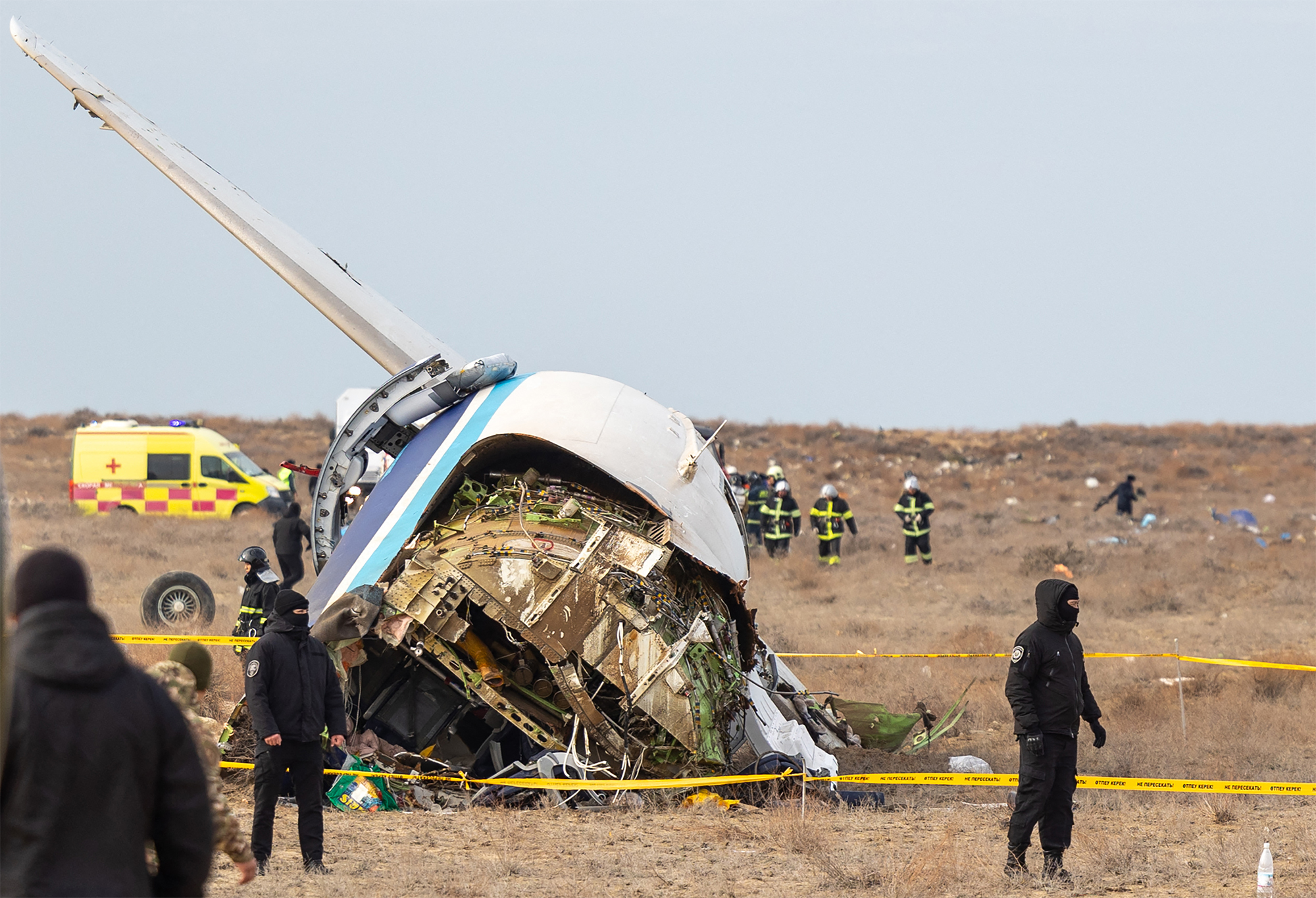 Azerbaijani plane shot down by Russia (Photo: Getty Images)
Azerbaijani plane shot down by Russia (Photo: Getty Images)
"Azerbaijan has a certain social hierarchy, and when the presidential administration issues a directive — or when dissatisfaction with Russia appears among the political elite — society tends to align with that stance," the expert continued. "So when the plane was shot down, President Aliyev was very outspoken, and pro-government experts and journalists followed suit. But the 'Russian sector' didn’t support this stance of official discontent. On the contrary, they began defending Russia."
According to her, the Azerbaijani leadership has come to understand that these Russian-aligned agents can act as a fifth column during crises. Eliminating them is not feasible — Russian-language schools and universities make up a significant portion of the country's education system, not to mention the strong presence of Russian business in Azerbaijan. However, there will likely be increased efforts to bring the "Russian sector" under tighter control.
Meanwhile, the escalation between the two countries continues to intensify — both Russia and Azerbaijan are taking new hostile steps against each other almost daily.
Pashinyan vs. the church
Notably, as tensions between Russia and Azerbaijan escalate, relations between Russia and Armenia are also visibly cooling. As is often the case in global politics, the principle of "the enemy of my enemy is my friend" does not always hold true.
In recent days, Armenia has seen a dramatic turn of events. On June 25, the country carried out a series of high-profile arrests. Among those detained were several clergymen from the dominant Armenian Apostolic Church (AAC), including Archbishop Bagrat (Galstanyan), who led mass anti-government protests last year. Also detained was Russian-Armenian oligarch Samvel Karapetyan.
At the same time, Armenian Prime Minister Nikol Pashinyan has entered into an open conflict with the AAC leadership. Among other things, he is demanding the resignation of its Catholicos, Garegin II.
The government reported uncovering a network that was allegedly planning a violent takeover of power. Pro-government Armenian media and public figures are hinting at a Russian connection. Although no conclusive evidence has been presented, such a scenario is plausible given the geopolitical context around Armenia.
Political analyst Wojciech Wojtasiewicz noted that the Armenian Church has opposed Pashinyan from the very beginning. This is largely due to its deep ties with Armenia’s former political regime, which was ousted during the 2018 Velvet Revolution, as well as its close connections with Russia.

Archbishop Bagrat (Galstanyan) at an opposition rally (Photo: Getty Images)
In this context, the role of the detained oligarch Samvel Karapetyan is particularly significant. Though his primary business interests lie in Russia, he also controls Armenia's national power grid operator. Investigators claim this gave him leverage to destabilize the country. Moreover, just before his arrest, Karapetyan publicly expressed support for the church’s opposition to the government.
"Russia is directly interested in seeing the church rise against the government and become part of a broader campaign to destabilize the internal situation in Armenia. Karapetyan's trip to Yerevan was driven by precisely these considerations," Armenian political analyst Ruben Megrabyan told RBC-Ukraine.
The verbal clashes between the government and the church have escalated to unprecedented levels. In a recent exchange, one clergyman suggested that Pashinyan had undergone circumcision, prompting the Prime Minister to publicly invite church representatives to verify the contrary.
Meanwhile, Armenian Parliament Speaker Alen Simonyan, responding to the ongoing situation, suggested that Russian TV channels be completely shut off in Armenia due to interference in the country's internal affairs.
Yerevan at a crossroads
Armenia is undergoing a period of painful transformation. Following its defeat by Azerbaijan in the 2020 war and the complete loss of Nagorno-Karabakh in 2023, a self-proclaimed republic within Azerbaijani territory that had been predominantly Armenian, Yerevan is now striving to make lasting peace with Baku. A peace agreement is currently in the works.
At the same time, Prime Minister Nikol Pashinyan's government is working to restore ties with Türkiye. On June 18, the Armenian leader made the first official visit to Ankara in over a decade. Armenia's official relations with both Türkiye and Azerbaijan had been effectively frozen since the early 1990s, when Armenian forces seized control of Nagorno-Karabakh.
As a result, Armenia's borders with these two key neighbors remained closed for decades. Its only overland connections to the outside world were through Iran and Georgia. This semi-isolation severely restricted the country's economic development and international integration. Pashinyan's efforts to normalize ties with Azerbaijan and Türkiye aim precisely at ending that isolation.
At the same time, Armenia is gradually stepping away from Russia's sphere of influence, evidenced by the effective suspension of its activity in the CSTO (Collective Security Treaty Organization), and is strengthening its cooperation with the European Union, with a future referendum on joining the EU already being discussed.
"This is obviously not a one-step process. It's complex and demands deep reconsideration. But the process is irreversible. There is a certain fatigue from all these conflicts, and an understanding that lasting peace with neighbors is essential for the survival of the Armenian state," political analyst Ruben Megrabyan told RBC-Ukraine.
He added that while the majority of Armenians support this direction, not everyone agrees, especially as Azerbaijan, being the stronger side, can now dictate terms in the peace process.
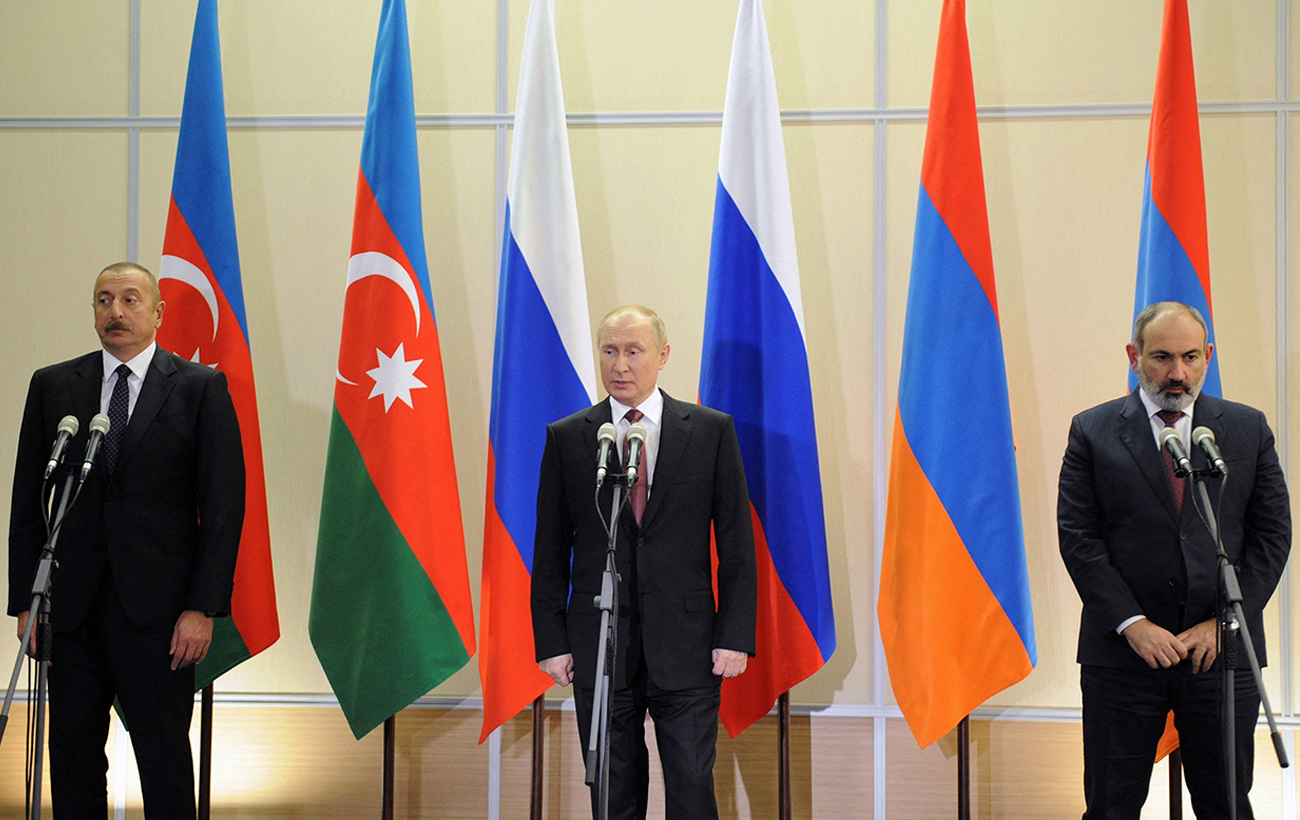 Ilham Aliyev, Vladimir Putin, and Nikol Pashinyan during a 2021 meeting in Sochi (Photo: Getty Images)
Ilham Aliyev, Vladimir Putin, and Nikol Pashinyan during a 2021 meeting in Sochi (Photo: Getty Images)
Next year's parliamentary elections in Armenia will be a key turning point. According to analyst Wojciech Wojtasiewicz, Pashinyan and his ruling party, Civil Contract, are far less popular now than they were during the last election in 2021, not to mention the heights of support during the 2018 Velvet Revolution.
"Civil Contract Party is polling at around 11–18%, while other parties each attract only a few percent of voter support. Pashinyan hopes to secure over 30% of the vote, which, given the weakness of the opposition, could still give him over 50% of seats - the parliamentary majority," the expert noted.
Pashinyan plans to campaign on Armenia's improved economic situation, closer ties with the EU, the possibility of visa-free travel to Europe, reduced dependence on Russia, peace efforts with Azerbaijan, and a newly signed strategic partnership with the United States. This explains his urgency in finalizing a peace deal and normalizing relations with Türkiye.
Meanwhile, the Kremlin is countering with hybrid tactics. "Russia is preparing for destabilization. Every day, it carries out actions aimed at discrediting Armenia's government and disrupting society through disinformation campaigns. Recently, it has also shown it's not above using sabotage and even terrorist methods," Ruben Megrabyan warned.
***
This is Russia's last chance to maintain influence over the region based on the principle of divide and rule.
"Russia fears that if Azerbaijan signs a peace treaty with Armenia, definitively ending the Karabakh war, it will no longer be able to exploit the Armenian-Azerbaijani conflict to expand its influence in the region," emphasized Wojtasiewicz.
According to him, the Kremlin seeks to change Azerbaijan's policy to a more pro-Russian stance, while regarding Armenia, to remove Pashinyan and bring a pro-Russian government to power.
Thus, the stakes in this game in the South Caucasus are extremely high, and increasingly hostile moves from Russia should be expected. At the same time, it has fewer and fewer resources for full-scale intervention in the region's affairs. Paradoxically, to some extent, Armenia and Azerbaijan are saved by Ukraine, which is grinding down Russian forces on its own territory.
Sources: statements from Russian, Armenian, and Azerbaijani politicians, as well as comments from Wojciech Wojtasiewicz, Maryna Honcharuk, and Ruben Megrabyan.
